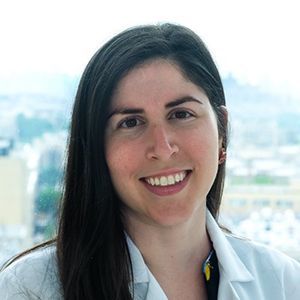My Raft of Women (and Men)

On February 3, 2021, Nasrien Ibrahim, MD, FACC, composed a tweet that echoed around the Twitterverse: "Gentleman, it's 2021 and there are [so] many women in heart failure for this entire conference to be all men. Do better..." She was referring to the faculty line-up that was released in anticipation of an upcoming heart failure conference; more than 20 faculty members were listed, all male and predominantly of Caucasian ethnicity.
As a woman in medicine and an aspiring heart failure specialist, I was disheartened by the exclusion of women (and other racial and ethnic groups) from the conference program. I reached out by email and phone to some of my female colleagues and mentors, many within the field who I have seen on the national and international stage. They quickly responded with a range of emotions from frustration to disappointment. Yet, there was resounding unanimity in the call for change.
Contrary to past experiences, I witnessed in real-time the impact of social media in provoking meaningful change. This single comment sparked a flurry of discussion and united female leaders in cardiology and heart failure across the globe. The "manel" or "manference", terms commonly cited on Twitter and discussed by Francis S. Collins, MD, PhD, was denounced without reservation. Many of the conference speakers were seemingly unaware of the speaker line-up and lack of diversity. Invited speakers were quick to propose female speakers and some declined their speaking invitation after this discovery came to light. Additionally, the Heart Failure Society of America, an organization which prides itself on inclusivity and diversity, having elected female presidents for the past two terms, implored the conference coordinators to diversify its speaker program. As a result of this advocacy, eight female speakers were included in the program.

For my part, I took immense comfort in the solidarity of cardiologists, both women and men, who had the confidence to advocate, utilize their networks and provoke meaningful change. Moreover, this event highlighted the powerful impact of social media within medicine.
Last fall, Purvi Parwani, MD, FACC, wrote in JACC: Case Reports about the concept of the raft of otters among women in cardiology. The model was initially described by Jessica Piazza and Dara Kass in a children's book focused around Olivia the Otter, an independent female otter with excellent swimming skills, who builds a raft of otters after a big storm. By holding hands, the otters stay unified and prevent themselves from drifting away from one another. I feel this is an excellent analogy to remind women of the ability to overcome adversity with teamwork and mentorship.
The response of the heart failure and cardiology community more broadly showed me just how large and dependable my raft of women (and men) is. In these times of unprecedented physical isolation and psychological stress, when experiences can feel so singular, I also learned how powerful it can be to amplify the message of others, to show your solidarity of spirit. When one woman speaks out, it becomes easier for others to find their voice. When we take a chance and reach out our "virtual" hands, others can "grab hold." Help them onto your raft; they may become lifelong friends, colleagues, mentors, and sponsors. May we all weather the storm and reach the shore together.
This content was developed independently from the content developed for ACC.org. This content was not reviewed by the American College of Cardiology (ACC) for medical accuracy and the content is provided on an "as is" basis. Inclusion on ACC.org does not constitute a guarantee or endorsement by the ACC and ACC makes no warranty that the content is accurate, complete or error-free. The content is not a substitute for personalized medical advice and is not intended to be used as the sole basis for making individualized medical or health-related decisions. Statements or opinions expressed in this content reflect the views of the authors and do not reflect the official policy of ACC.

